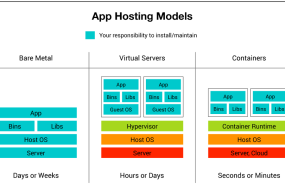
The world is on the cusp of a digital transformation powered by the 5G revolution. The implications of 5G technology extend far beyond faster mobile connections; it is set to redefine High Availability (HA) in cloud hosting. In this blog, we delve into the profound changes brought about by the 5G era and how it enables unprecedented HA in cloud hosting.
Unveiling the 5G Revolution
As the fifth generation of wireless technology, 5G promises remarkable advancements in connectivity and data transfer speeds. It opens the door to a host of possibilities for businesses and individuals alike.
Speed and Low Latency
5G technology is expected to offer data transfer speeds of up to 20 Gbps and latency as low as 1 millisecond. This remarkable leap in performance will reshape how we interact with digital services and applications.
Ubiquitous Connectivity
5G’s infrastructure aims to provide ubiquitous connectivity, ensuring that even in remote or densely populated areas, users can stay connected. This level of coverage is a game-changer for cloud hosting.
High Availability in Cloud Hosting
High Availability (HA) is a critical aspect of cloud hosting, ensuring that services and applications remain operational without interruption. 5G technology is poised to elevate HA to new heights.
Reduced Downtime
With faster data transfer speeds and low latency, 5G-enabled cloud hosting can reduce downtime to near zero. This means that businesses can operate without interruptions, even during maintenance or unforeseen issues.
Improved Load Balancing
5G enables more efficient load balancing, ensuring that resources are distributed optimally across servers. This results in consistent performance, even during high traffic periods.
Applications of 5G-Enabled High Availability
The impact of 5G on cloud hosting goes beyond ensuring seamless connectivity; it paves the way for new and improved applications.
Real-time Analytics
With minimal latency and high-speed connectivity, businesses can leverage real-time analytics for data-driven decision-making, enhancing their operations.
Edge Computing
5G’s ubiquity and low latency make edge computing more practical. This approach allows data processing to occur closer to the source, reducing delays and enhancing real-time applications.
Overcoming Challenges
While 5G promises to revolutionize HA in cloud hosting, there are challenges to address.
Infrastructure Requirements
Implementing 5G-enabled hosting demands significant infrastructure upgrades. Ensuring that the necessary hardware and network capabilities are in place is crucial.
Security
With increased connectivity, the need for robust security measures is paramount. Protecting data and applications from potential threats is a top priority.
The Future of Hosting
The 5G revolution is reshaping the landscape of cloud hosting, opening up new possibilities for businesses and individuals. As 5G technology continues to expand its reach, we can expect unprecedented levels of High Availability in cloud hosting.
Final Words
The 5G revolution is reshaping the landscape of cloud hosting, promising unprecedented High Availability and redefining the future of hosting. As 5G technology continues to expand its reach, we can expect a new era of seamless connectivity and improved performance in cloud hosting.
Commonly Asked Questions
Q1: What is the 5G revolution, and how does it impact cloud hosting?
The 5G revolution refers to the deployment of fifth-generation wireless technology, offering significantly faster data transfer speeds and lower latency. This technology enhances High Availability in cloud hosting by reducing downtime and improving load balancing.
Q2: What are the key benefits of 5G-enabled High Availability in cloud hosting?
The key benefits include reduced downtime, improved load balancing, real-time analytics, and the potential for edge computing. These advantages enhance the reliability and performance of cloud hosting.
Q3: What challenges does the implementation of 5G-enabled hosting face?
Implementing 5G-enabled hosting requires substantial infrastructure upgrades and robust security measures to protect against potential threats in the increased connectivity.
Q4: How can businesses prepare for the 5G revolution in cloud hosting?
Businesses can prepare by assessing their infrastructure requirements, investing in the necessary hardware and network capabilities, and prioritizing robust security measures to protect their data and applications.
Q5: What are the potential applications of 5G technology in cloud hosting?
The potential applications include real-time analytics for data-driven decision-making and the adoption of edge computing for faster data processing and improved real-time applications in cloud hosting.
Advertisement







